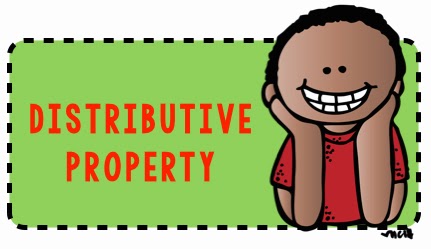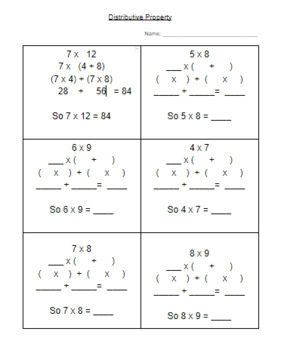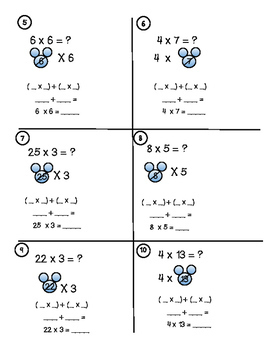Distributive Property Of Multiplication. As demonstrated, the Commutative Property allows the order of factors to be changed Notice that the Commutative and Associative Properties use the single operation of multiplication. The distributive property of multiplication lets you simplify expressions wherein you multiply a number by a sum or difference.

Decomposing the multiplicand: The distributive property of multiplication.
The Distributive Law says that multiplying a number by a group of numbers added together is the same as doing each multiplication separately.
In math, distribution (also called the distributive property of multiplication over addition) allows you to split a large multiplication problem into two smaller ones and add the results to get the answer. What is the Distributive Property of Multiplication? - Each mathematical operation in itself is magical. Definition: The distributive property lets you multiply a sum by multiplying each addend separately and then add the products.








